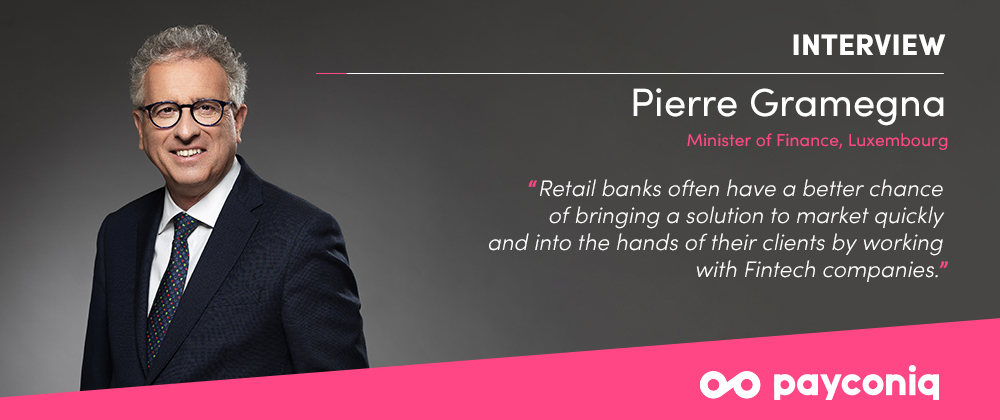Luxembourg’s success story is strongly linked to innovation in the financial sector. How would you describe the financial sector’s capacity to reinvent itself and seize opportunities in the digital era?
Luxembourg has long been a pioneer when it comes to finance: from the first Eurobond in 1963, to the listing of the first green bond in 2007 and more recently, in 2016, the first regulated cryptocurrency exchange in Europe. The secret to success has always been a strong culture of dialogue between the government and the financial industry in order to be able to adapt to changes and identify new opportunities. In order to allow the financial centre to seize opportunities in the digital age, the Luxembourg House of Financial Technology (LHoFT) has been set up as a private public partnership connecting Fintech innovators and traditional financial institutions.
How can cross-border companies like Payconiq fit into Luxembourg’s ambition of becoming a Fintech European hub?
Luxembourg offers Fintech companies two distinct advantages.
First: Being home to a leading international financial centre, Luxembourg provides a large potential client base for Fintech companies, especially for BtoB firms, as well as access to decision makers.
Second: Located at the heart of Europe and thanks to its international business environment and multilingual, highly skilled workforce, Luxembourg is ideally suited to act as a hub to serve customers across the European single market.
Fintech companies that provide cross-border services thus not only find a perfect fit in Luxembourg, but also help to further strengthen this cross-border Fintech ecosystem.
Financial institutions, and especially banks, have been going through a transformation process in the past years, mainly driven by technology, regulation and market changes. How do you see their evolution, as well as their interaction with new comers, such as start-ups, tech companies?
A few years ago, everyone talked about how Fintech firms are going to disrupt traditional banks and take away their customers. Today, however, the focus is on partnerships. While banks have the clients and the trust of these clients as well as the necessary regulatory expertise, Fintech firms are nimble and have the capacity to develop innovative new solutions much faster than banks ever could. Both therefore stand to benefit from cooperation. The LHoFT was created precisely to encourage this interaction and help drive innovation for the benefit of the entire industry.
Why should Luxembourg-based retail banks collaborate with Fintech companies like Payconiq?
Retail banking is a very competitive market, and even more so in a country the size of Luxembourg with only a handful of local retail banks. Rather than develop solutions internally and in silos, which can be very costly and time-consuming, retail banks often have a better chance of bringing a solution to market quickly and into the hands of their clients by working with Fintech companies.
How would this cooperation benefit their customers?
Ultimately, such cooperation between banks and Fintech companies should always benefit the customer: whether by making processes more efficient, reducing costs for the consumer, offering new value-added services or improving the overall customer experience.

